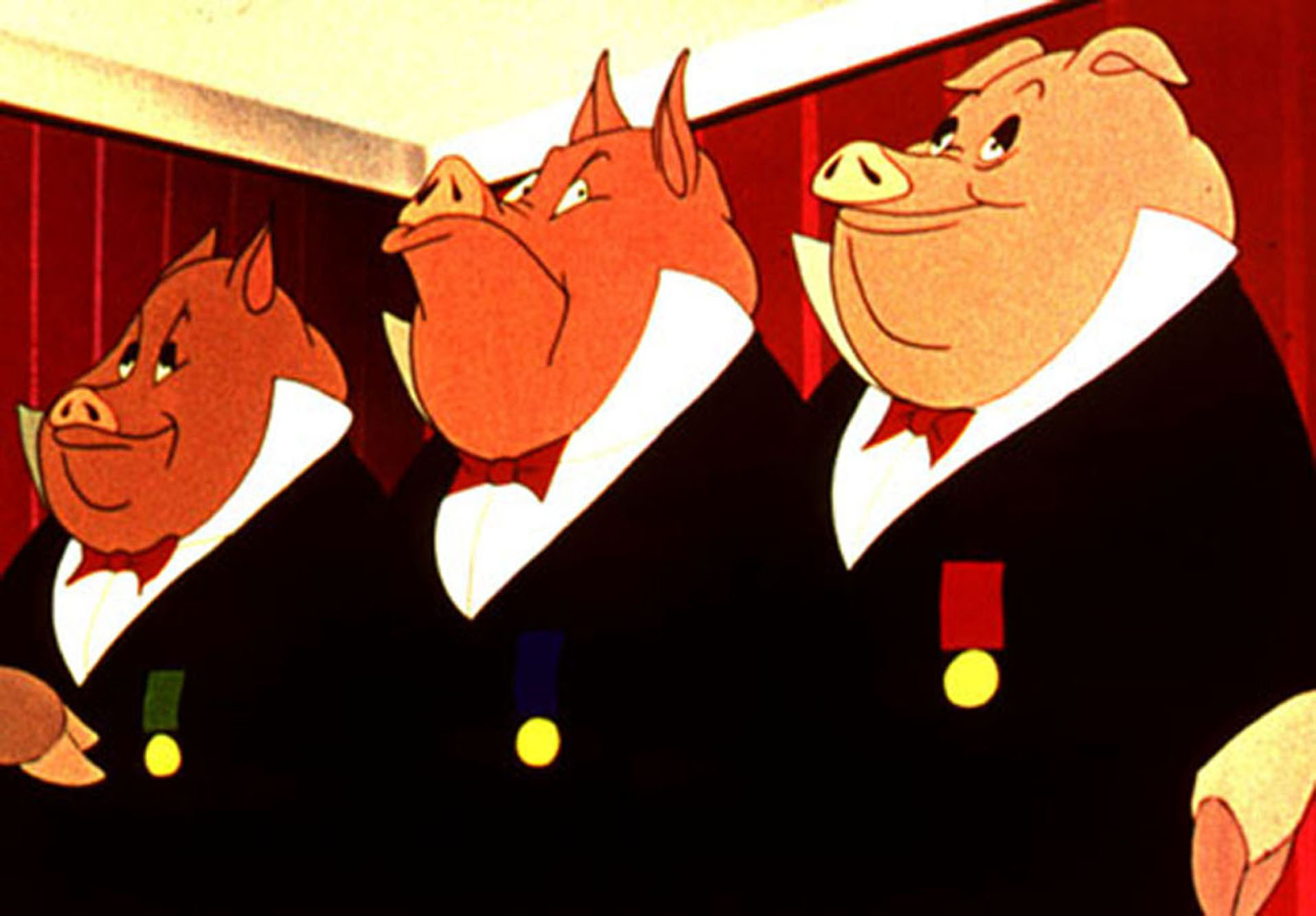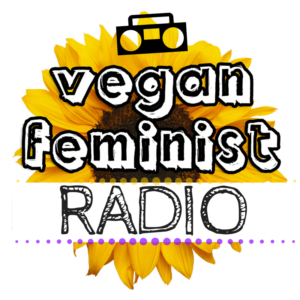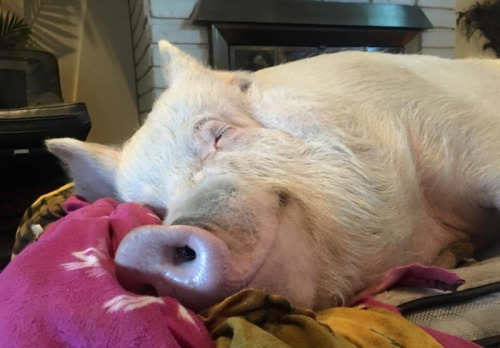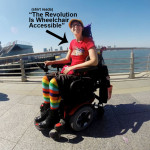
Content Warning: Ableism, trans antagonism, racism
By Aris Austin
A couple of weeks ago, I published an article on why vegans need to be better pro-intersectional activists. If you haven’t already read that article, I encourage you to read it before moving on to this one. If you’re short on time, here’s a quick summary: Being a pro-intersectional activist (1) is the right thing to do and (2) will make our movement stronger.
So, how can we go about actually being pro-intersectional activists? I am by no means an expert on the issue, but I do try my best. I hope to outline a few first steps we can all take below.
1. Listen
Listen, listen, listen. This is number one on my list for a reason. Leadership starts with listening. Unless you are a single mother struggling to feed her family, you won’t know what her life is like unless you listen to her. And if you try to advocate for her before listening, you’re talking over her instead of using your voice to amplify hers. That isn’t good advocacy.
Listening doesn’t necessarily mean needing to seek out that single mother, or sitting on your hands until you happen to hear her speaking. You can educate yourself. It’s easier now than ever to listen to the stories, experiences, and needs of people. A simple Google search will yield countless articles, blog posts, and videos from single mothers talking about their experiences. So do some research. Listen to the voices of oppressed individuals. Learn, and then use your own voice to amplify theirs.
2. Never stop listening
If you haven’t seen Chimamanda Adichie’s Ted Talk, “The Danger of a Single Story,” I encourage you to watch it. As she explains, “The single story creates stereotypes, and the problem with stereotypes is not that they are untrue, but that they are incomplete. They make one story become the only story.”
We cannot allow ourselves to think that because we know a single story, we know every story. Listening to that mother’s story is an important step, but it does not make us an expert on the lives of everyone struggling to feed their children. How can we claim to know the story of a disabled mother of two in Chicago simply because we’ve already listened to the story of an able-bodied mother of three in São Paulo? Their experiences may be completely different. If we ever make the mistake of thinking that we’re done learning, we limit our ability to do good things and increase our potential to cause damage.
3. Own your mistakes
This one can be hard to do, but it’s also incredibly important. And hey, we all mess up sometimes. Every single one of us has made some kind of mistake in the past, and as we learn, it’s reasonable to expect ourselves to make more. However, the way we handle ourselves after making a mistake can mean the difference between a good and a bad conversation. Because of this, it’s important to handle ourselves well.
In my article on why vegans need to be better pro-intersectional activists, I used an example where you unintentionally hurt a friend by using the term “moral schizophrenia” to describe the treatment of animals. Let’s explore that example again, first looking at what might happen owning your impact.
You: “The way people cuddle their dogs at night and have no problem slaughtering pigs…They don’t even feel bad about eating bacon, but recoil at the thought of eating dogs. It’s total moral schizophrenia!”
Your friend: “Whoa, hold on. I get what you’re trying to say, but it really bothers me that you call it “schizophrenia.” That makes it sound like people with schizophrenia are violent, or don’t know how to make moral decisions. I have schizophrenia, remember? I would never hurt anyone.”
You: “I see what you mean, but that’s not my intention. I’m just saying that people treat animals in unpredictable and sometimes violent ways. I’m not trying to offend anyone.”
Your friend: “But when you use it like that, it’s ableist. You’re adding to the stigma that makes people see me as violent, unsafe to be around, and unfit to live in society. Will you please stop using that term?”
You: “You don’t get it. That’s not what I mean at all. I mean, obviously I feel safe around you, so you know that isn’t what I mean. I get that the term might offend you, but it’s a pretty common term in the animal rights movement. Sometimes we have to use shocking language to explain shocking things. Anyway, if most people knew that pigs weren’t all that different from dogs…”
You have completely lost your friend at this point. By defending yourself instead of listening, you’re causing hurt and perpetuating stereotypes that potentially limit her options in life. You’ve probably caused some damage to your relationship, and you’re certainly not getting anywhere with your vegan message. Worse, you may have given her the impression that veganism is an inherently ableist movement, and you’ve left yourself open to making the same mistake in the future.
Now let’s look at an example where you own your impact and address your mistake:
You: “The way people cuddle their dogs at night and have no problem slaughtering pigs…They don’t even feel sorry about eating bacon, but recoil at the thought of eating dogs. It’s total moral schizophrenia!”
Your friend: “Whoa, hold on. I get what you’re trying to say, but it really bothers me that you call it “schizophrenia.” That makes it sound like people with schizophrenia are violent, or don’t know how to make moral decisions. I have schizophrenia, remember? I would never hurt anyone.”
You: “Wow…I guess I never thought of it that way. I don’t know what to say, except that I’m sorry for hurting you. I’m going to make an effort to stop using that term, and to be more aware of casual ableism in my language. Thank you for telling me.”
Sure, it sounds a little corny, and apologizing and owning your impact probably didn’t fix everything. Your friend may still be hurt. But by simply apologizing and not arguing, you’ve minimized the damage you’ve done and taken a big step toward doing better in the future. Rather than alienating your friend, you’ve shown her respect, and you’ve taken a step toward deconstructing oppressive systems.
It can be hard to take being called out well. Our first reaction is to become defensive, because we feel like we’re being attacked. It might be helpful to keep in mind that your friend probably only spoke up because she trusts you. She knows that you’re a good, thoughtful person, so she expects you to be willing to correct your mistake. In a way, her calling you out may be a sign that she thinks highly of you and is willing to push you to do better.
4. Speak up
This step combines all of the previous steps and helps you create positive change. You can’t (and shouldn’t) rely on your friend to educate every vegan on why saying “moral schizophrenia” is wrong. Let’s say that after your conversation, you went home and did some extra reading on why saying “moral schizophrenia” is problematic (educating yourself is great!). Now, let’s say that a few weeks later, you hear another vegan drop the term. This is your chance to speak up.
It’s probably more constructive to engage this other vegan in a conversation rather than outright attacking them. Since you also used to use the term, you can start by finding common ground with them, and then explaining why you’ve changed your mind. Let’s look at an example:
You: “Hey, I just wanted to point out something you might not be aware of. I noticed your use of the term “moral schizophrenia,” which is something I used to say too. But a friend recently pointed out that it implies those with schizophrenia are violent and dangerous. That’s already a major stereotype that can limit their employment, housing opportunities, and even safety. When we use it to describe violent systems, it only worsens the societal stigmas they have to live with every day. I know you probably didn’t mean any harm, but do you think we could talk about using different language that isn’t so harmful?”
They may change their behavior based on that simple conversation. Even if they reject your invitation, at least you did the right thing. You’re acting in support of your friend, and you’re working to remove harmful behavior from the vegan community. In doing so, you’re doing the right thing, and you’re making the vegan movement stronger by making it more inclusive and accessible.
It is important to note here that we should use our voices to amplify the voices of oppressed individuals rather than “talking over” them. What I mean by this is that we should be mindful of the space we’re taking up, especially if we’re speaking from a place of privilege. Like many things, this is dependent on the situation. If a man in a group of men hears a misogynistic remark from his friend, that is absolutely the time and place for him to speak up. However, if that same man finds himself in a room where several women are already discussing their own experiences of harassment from men, this is probably a good time for him to listen and learn rather than launching into a speech of his own. Women in our society are already so often “spoken for” by men, so it’s best for him not to take over the conversation, especially because he’s probably the least experienced person in the room on that particular subject.
5. Act in solidarity with others
I’m not saying we all need to drop animal rights as our first priority. But there’s little that bothers me more than people who purposely ignore every other form of oppression simply because of animals. To avoid speaking out against racism or xenophobia simply because you think the group of people being attacked is especially bad for the animals is (and yeah, I’ve seen stuff like that coming from some fairly prominent vegans). To condone slurs about Chinese people “because they eat dogs” ignores the fact that (1) people in many other countries eat pigs, who aren’t so different from dogs, (2) there are many wonderful activists in China working to end the dog meat trade and (3) racism is never justified, no matter what stereotypes you decide to believe.
We can do better by avoiding this mistake, but we can also do better by acting in solidarity with others. There are so many other movements that deserve our support, and we can give it to them by making very few or even no sacrifices to our work for the animals. Consider North Carolina-based group Vegans for Peace. Members of their group have joined other LGBT rights activists for several protests against North Carolina’s discriminatory House Bill 2. I imagine that many of these activists are animal rights activists first and foremost, but they understand the injustice happening in their state, and they’re taking the time and effort to protest it.
Acts of solidarity like this not only help combat injustice, but also make the vegan movement more inclusive. A group of vegans protesting HB2 tells the government that trans discrimination is wrong. But it also tells trans people that they’re safe around that group of vegans. And if we help people feel safe and welcomed around us (rather than making them feel unsafe or excluded, like some vegans seem intent on doing,) it greatly increases our movement’s potential for growth and positive change.
This is part two of four in a series on veganism and social justice.
 Aris Austin is an author, student, and activist who writes fiction and nonfiction that aims to dismantle oppression. Their fiction has previously been awarded with honors at Colorado State University, where they attend school and serve as president for the university’s animal rights group. Aris can be found on Facebook page and more of their writing is available on their website.
Aris Austin is an author, student, and activist who writes fiction and nonfiction that aims to dismantle oppression. Their fiction has previously been awarded with honors at Colorado State University, where they attend school and serve as president for the university’s animal rights group. Aris can be found on Facebook page and more of their writing is available on their website.











